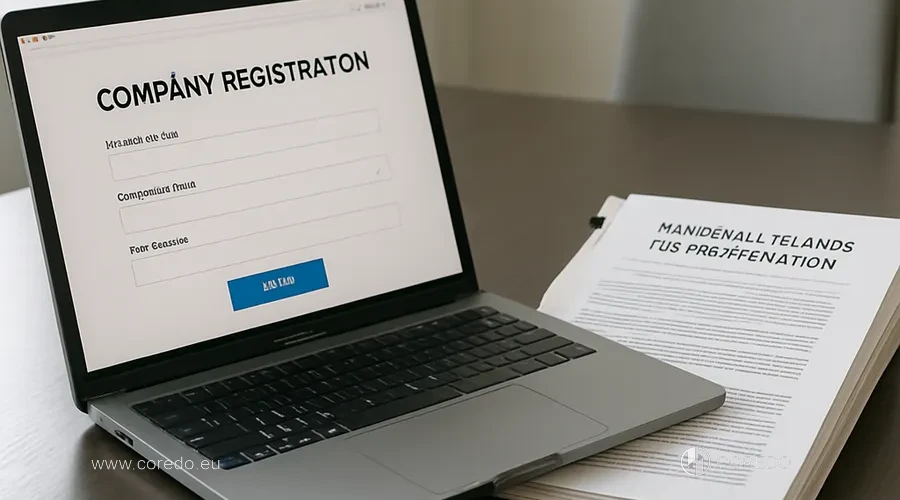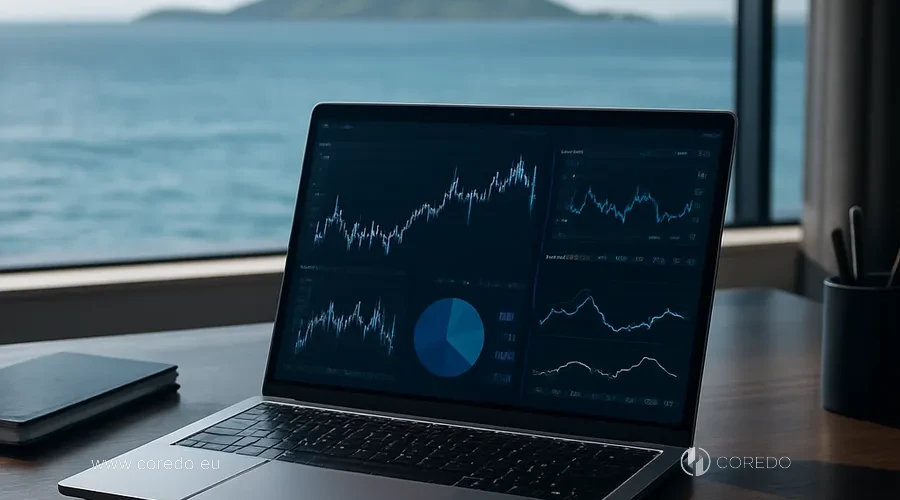In 2025, more than 60% of international transactions are conducted through structures with elements of offshore planning — and this share continues to grow despite tightening global regulation. Why? Because the proper use of international business companies allows not only tax optimization, but also flexibility, asset protection and a rapid entry into new markets. Still, behind the appeal of offshore solutions lie complex questions: how to choose a jurisdiction, avoid falling under sanctions, ensure AML and KYC compliance, and remain transparent to banks and regulators?
Marshall Islands IBC is a tool around which opinions clash today: some call it ideal for international trade, others point to the risks and new economic substance requirements. How does this structure actually work? What opportunities and limitations await an entrepreneur? How can beneficiary anonymity be ensured while not violating international transparency standards? I am Nikita Veremeev, founder of COREDO, and the COREDO team has for several years now been supporting clients from Europe, Asia and the CIS on matters of registration, licensing and maintenance of Marshall Islands IBCs. In this article I will examine in detail the key characteristics, advantages, risks and best practices of using a Marshall Islands IBC — so you can make decisions based on facts, not myths. Read to the end: here you will find not only theory but also practical recommendations based on real COREDO cases.
Marshall Islands IBC – what it is and why it’s needed for international business

The legal structure of Marshall Islands IBC is built on the principles of Anglo-Saxon (English) law, which ensures predictability and flexibility in corporate governance. A key advantage is the allowance of 100% foreign ownership of the company, with no restrictions on the citizenship or residency of shareholders and directors. The official currency is the US dollar, and the working language for documentation is English, which significantly simplifies interaction with international counterparties and banks.
Marshall Islands International Business Company Registration

Registration of a Marshall Islands IBC: this is a clearly structured process that the COREDO team implements within 1 business day if a complete set of documents is provided. The first stage is choosing a unique name that complies with the requirements of the Business Corporations Act. Next, preparing the constituent documents: passport and proof of address for individuals, apostilled corporate documents for legal entities.
A nominee service is a tool that COREDO often implements for clients who wish to enhance business confidentiality. Nominee directors and shareholders make it possible to ensure the anonymity of beneficiaries while complying with international KYC and Due Diligence.
The cost of registering and annually maintaining a Marshall Islands IBC is traditionally lower than in most alternative offshore jurisdictions. The entire process, from submitting the application to receiving corporate documents and apostilling them, takes 1–2 days with professional assistance.
Features and benefits of Marshall Islands IBC

Marshall Islands IBC is a classic offshore company with a focus on tax neutrality and business confidentiality. Under current legislation, an IBC is exempt from all types of taxes on income earned outside the territory of the Marshall Islands. This creates conditions for effective international tax planning and optimization of a group’s corporate structure.
Business confidentiality is ensured by the absence of a public register of shareholders and directors. Beneficial owners’ anonymity is maintained both at the level of corporate documents and through the use of nominee services. At COREDO we have implemented dozens of projects where beneficial owners’ anonymity was a key requirement for asset protection and minimizing reputational risks.
A flexible corporate structure allows issuing no-par value shares and using bearer shares (to the bearer), which is in demand in investment and holding schemes. At the same time, since 2021 requirements for economic substance (Economic Substance) have been tightened: companies carrying out certain types of activities are required to have a real presence (office, employees) or conduct business activity on the islands. The solution developed by COREDO enables clients to meet these requirements without excessive costs, using modern tools for managing substance.
Restrictions and activities of Marshall Islands IBC

For international trade, holding structures, investment funds and joint ventures, Marshall Islands IBC remains one of the most flexible instruments. In COREDO’s practice there have been cases when an IBC was used to go public on international stock exchanges: such a structure makes it possible to consolidate assets, minimize taxes and provide transparency of corporate governance for investors.
Nevertheless, when planning an investment fund or a holding structure it is important to take into account economic substance requirements and activity-specific restrictions. For example, insurance or banking activities require separate licensing and enhanced regulatory oversight.
Bank accounts and operations for an IBC in the Marshall Islands

opening a bank account for Marshall Islands IBC, a task that requires a deep understanding of international banking standards and the specifics of working with offshore structures. In Europe and Asia, banks impose heightened requirements for KYC and AML compliance, especially with regard to beneficial owners and sources of funds.
COREDO’s practice confirms: the key to successful account opening is a transparent corporate structure, properly prepared documents, proof of economic rationale and readiness to undergo comprehensive Due Diligence. In some cases the COREDO team uses multi-currency payment systems and fintech solutions to ensure flexibility for international payments and currency control.
Marshall Islands IBC must comply with FATCA, CRS and international tax planning requirements: banks and payment systems require disclosure of information about beneficiaries, sources of funds and purposes of transactions. financial monitoring is becoming the standard: automatic exchange of tax information between jurisdictions requires IBC owners to be transparent and ready for inspections.
Corporate governance and support for Marshall Islands IBC
Minimum requirements for directors and shareholders: one director and one shareholder, with no restrictions on citizenship or residency. This provides flexibility of the corporate structure and ease of management. At COREDO we often implement a nominee service for directors and shareholders, which increases the level of confidentiality and reduces reputational risks for the ultimate beneficiaries.
Registered agent: a mandatory element of the structure: it is responsible for storing corporate documents, dealing with the regulator and timely renewal of the company. Choosing a reliable agent is the key to the legality and uninterrupted operation of the IBC. COREDO’s experience shows that mistakes at this stage can lead to account freezes or loss of corporate rights.
Legal business support includes preparing corporate resolutions, holding meetings, documenting transactions, as well as resolving disputes in international arbitration. A Marshall Islands IBC can be a party to international agreements, participate in arbitrations and courts, which is important for protecting business interests at the global level.
Risks and Best Practices for Marshall Islands IBC
Using offshore structures in 2025 is associated with new regulatory and reputational risks. Tightening OECD requirements, the implementation of automatic exchange of tax information (CRS), and strengthened AML compliance and KYC procedures require owners of Marshall Islands IBCs to maintain maximum transparency and readiness for inspections.
Key risks: account freezes, denial of service by banks, loss of tax residency, negative impact on business reputation. At COREDO we apply comprehensive risk management: we structure corporate groups taking into account international tax legislation, conduct regular Due Diligence and KYC, and implement asset protection tools and financial monitoring.
COREDO’s best practices include: regular audits of the corporate structure, updating KYC and AML documents, implementing internal control procedures, and training staff in FATCA, CRS and OECD standards.
For effective risk management and adaptation to new requirements in 2025, entrepreneurs should promptly take into account changes in legislation and global trends to maintain business resilience and reputation.
Let’s move on to practical recommendations for company executives and owners.
Recommendations for entrepreneurs and executives
- Selection of a registered agent and nominee service. A reliable agent is the foundation of the legality and stability of a Marshall Islands IBC. At COREDO we recommend conducting a comprehensive check of the agent, assessing its experience, reputation and licensing.
- Optimization of the corporate group structure. Using a Marshall Islands IBC for holding structures, international trade and cross-border investments allows minimizing taxes, increasing asset protection and ensuring management flexibility. COREDO’s solutions for optimizing corporate structures take into account the requirements of economic substance and international tax law.
- Business scaling and entry into global markets. A Marshall Islands IBC is an effective tool for scaling a business, launching an IPO on international exchanges, and managing joint ventures and investment funds.
- Legality, transparency and personal data protection. Compliance with international standards AML, KYC, FATCA, CRS and GDPR is a mandatory condition for successful operations. COREDO’s practice shows that transparency of the corporate structure and readiness to disclose information are the keys to the trust of banks and partners.
- Effective use of a Marshall Islands IBC. Regular audits of the structure, updating corporate documents, and implementing risk-management and financial-monitoring tools are the guarantee of resilience and long-term business success.
Marshall Islands IBC vs other offshore jurisdictions: comparison
| Parameter | Marshall Islands IBC | BVI Business Company | Seychelles IBC | Cayman Islands Exempted Company |
|---|---|---|---|---|
| Corporate tax | 0% | 0% | 0% | 0% |
| Public registry | No | No | No | No |
| Substance requirements | Moderate | Moderate | Moderate | High |
| Registration cost | Low | Medium | Low | High |
| Restrictions on activities | Banking, insurance, trust, gaming | Banking, insurance, trust, gaming | Banking, insurance, trust, gaming | Banking, insurance, trust, gaming |
| Currency | US Dollar | US Dollar | US Dollar | US Dollar |
| English law | Yes | Yes | Yes | Yes |
Continued below: answers to the most frequently asked questions.
FAQ: Answers to Frequently Asked Questions
Through a licensed registered agent, remotely, in 1-2 days with a full set of documents.
Tax neutrality, confidentiality, a flexible corporate structure, no reporting and no audit requirements.
Use of nominee services, no public register, compliance with KYC and AML procedures.
– Prohibition on banking, insurance, trust and gambling activities without a license.
By preparing a full KYC package, a transparent corporate structure, and confirming the economic rationale.
– For certain types of activities, real presence or business activity on the islands is required.
– Use an IBC for international trade, holding structures, cross-border investments, taking into account international tax law requirements.
Tightening regulation, reputational risks, difficulties in opening bank accounts, and increased transparency requirements.
Use an IBC to enter new markets, manage joint ventures, and optimize corporate groups.
Passport, proof of address, corporate documents (for legal entities), apostille.